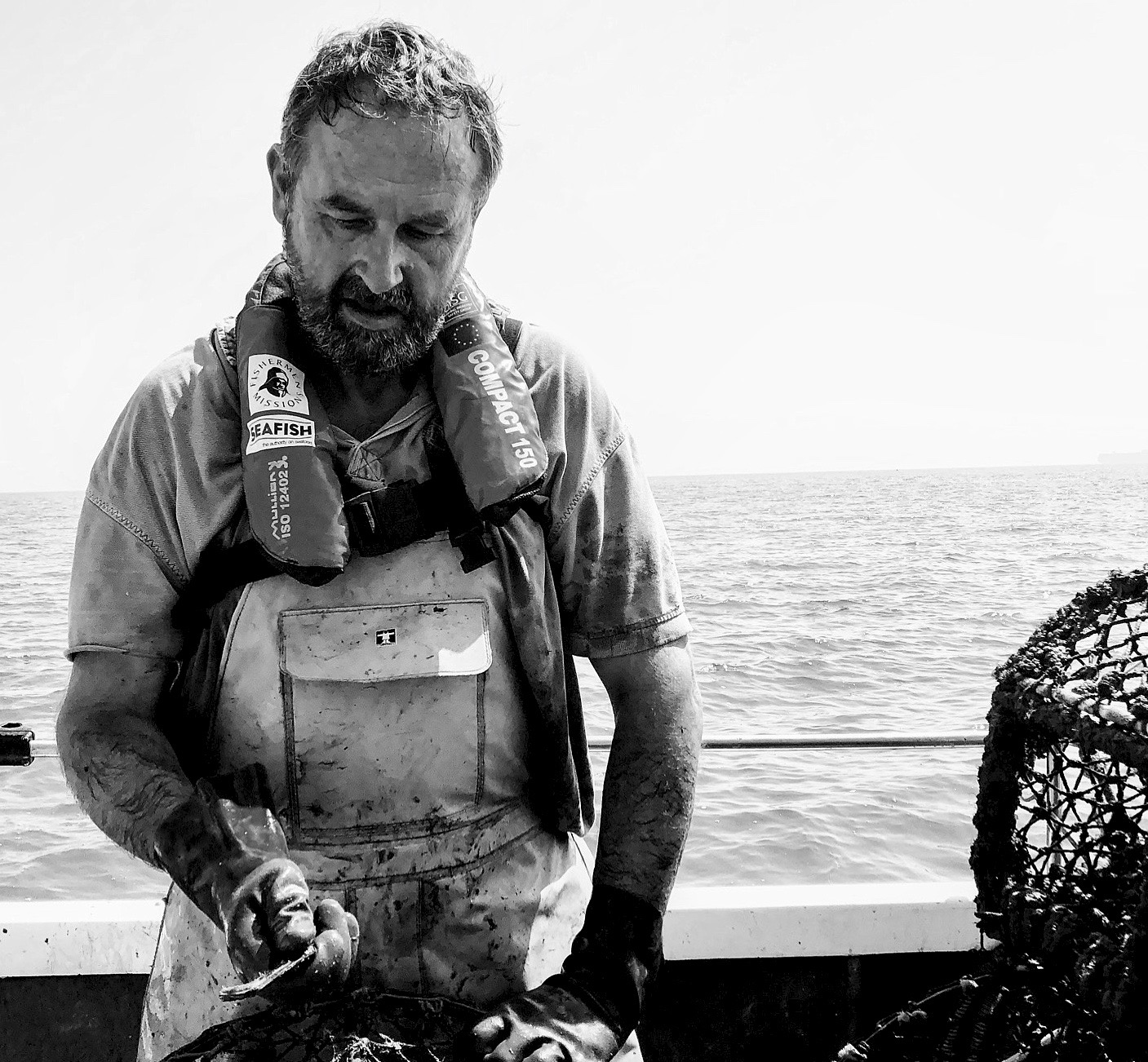Seafood sustainability

Mike Warner wants us all to eat more seafood, and as a huge fan of all things pescatarian I am only too happy to oblige. But aside from the delicious implications of this task, Mike’s mission is a meaningful one.
“There are 12,000 full-and part-time fishermen in the UK, approximately 7,000 of whom are in-shore fisherman who go out on day boats, and whose locally sustainable industry is totally different to the more global picture,” Mike explains.
“So when there’s misinformation in the media about fish stocks, sustainability or the fishing industry, this can really affect them. If someone says, ‘we shouldn’t be eating grey mullet’ for example and the whole country then turns away from that fish – when on a local level it is in fact sustainable – it denies them a seasonal catch and directly affects their prosperity.”
As well as being a seafood writer, food blogger and consultant, Mike is also patron of the National Lobster Hatchery in Padstow, a trustee of charity Fishing into the Future, project and business development manager for the Shellfish Association of Great Britain and a member of The Guild of Food Writers. His blog, A Passion for Seafood, has twice been shortlisted for The Guild of Food Writers’ Awards Food Blog of the Year.
“[Despite being] an island nation, we’re not a seafood eating culture and trying to change that is difficult.
“For example, 85% of the cod that we buy for the fish and chip trade is imported. Portion control is very important and the Norwegian industry is geared to this: they cut the fish into portions, freeze and pack it on board so it’s literally ‘chef ready’, and this keeps the price very consistent. In the UK, we land our fish fresh into ports where it’s sold at auction, so it can vary in price and consistency – in Italy, Spain and France they are happy to pay for this. That’s why 85% of our shellfish gets exported.”
Mike works with leading chefs such as Cyrus Todiwala OBE of Café Spice Namasté, Richard Kirkwood at Wright Brothers and Jack Stein of Rick Stein’s seafood-centric restaurants and he travels the country visiting schools and food festivals to deliver talks, demos and masterclasses.
“To me, sustainability is not all about the fish stocks – that’s only part of it. Equally important is the sustainability of the fleet and local communities and preserving the heritage and experience of the local fishing industry.”
His advice for consumers is to always ask where the fish has come from: “Seasonality depends on which part of the country you’re in, but in the summer go for lobster, crab and mackerel.”
The only place to get sustainably caught British fish is an independent fishmonger, he advises. “In the supermarket, generally, 90% of what you’ll find will be imported. The frozen products can be quite good, and tinned produce like Cornish sardines. They’re very tasty and full of Omega 3.”
When it comes to cooking he has one golden rule – less is more: “Just add a little lemon and garlic, and you’ve got a sustainable, healthy and environmentally friendly dish that’s returning money into the fishing community.”
For more tips and advice from Mike visit avocetmedia.co.uk, or follow him on @eastcoastavocet. Published in the August 2019 issues of The Chiswick Magazine, The Barnes Magazine, The Richmond Magazine and The Wandsworth Magazine, and online at Essential Surrey and SW London









